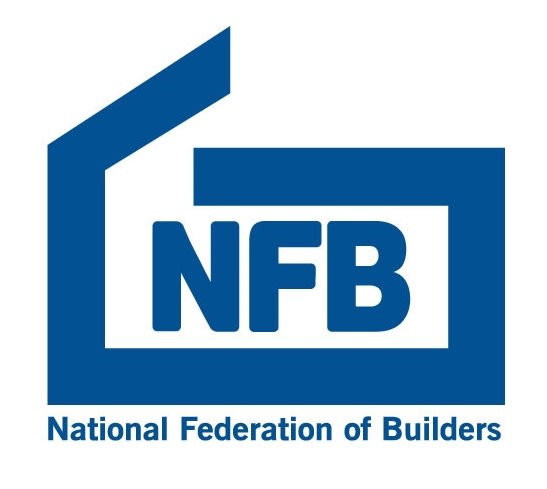Award-winning Midlands contractor McPhillips (Wellington) Ltd has secured a major new contract to deliver a £20m retirement community in Shropshire.
McPhillips will develop land off the A41 in Newport into 61 apartments and 15 bungalows for retirement community specialist, Untold Living.
The project is being led by innovative developer Untold Living, which aims to provide flexible living for older residents, with Newport being one of three communities of its type across the UK.
McPhillips director Chris Walker said: “We are really looking forward to developing this scheme for Untold Living and for Newport.
“There’s a significant benefit for the local community through our directly employed workforce and our established local supply chain. And of course, for the environment too, given we’re only based a few miles up the road.
“This is an exciting new development for Newport, a growing town with a population which is needing more choice for those who are retired or approaching their retirement.
Russell Jewell (CEO) of Untold Living, added: “We’re delighted to award the contract for this build to McPhillips, a local firm with a 60 year history in the area. It’s important to us that Newport and the wider surrounding community sees the benefit of our investment here.
“The Untold Living ethos is about creating retirement communities for the modern retiree enabling people to downsize affordably and with ease.
“There is a real shortage of good quality, smaller housing across this part of the borough and this development will enable those living in Newport to stay in the town but in much more manageable accommodation with support 24 hours a day, seven days a week, every day of the year for those that need it.
“The project will naturally also help to free up larger homes for families looking to upsize or move to the area so it’s a real win on all fronts.”
Construction work is due to start this month on the site which is opposite Mere Park Garden Centre and off Palisade Close, off the A41.
Mr Walker added: “We are in the process of siting a unit near the entrance to the site and we would welcome anyone interested in the scheme to pop by and view the development plans and layout. We will also be able to update on timescales for the construction programme and answer any questions.”
Untold Living, which is backed by a London-based private equity firm, was granted full planning permission for the site earlier this year after it secured a £26.4m loan to support the development.
Untold currently have a 69-unit retirement community in Wiltshire and an in-house CQC registered care business.
McPhillips is one of the Midlands’ biggest construction companies and has delivered more than 140 projects as principal contractor with a value of £300million in the last five years. It recently completed the refurbishment of Telford Fire Station on Stafford Park and employs more than 240 people at its Hortonwood site in Telford.
In this month of October, whilst watching the escalation of conflict in the Middle East, my thoughts immediately turned to the potential risk and impacts on the projects currently being delivered at home in the Midlands. We should never underestimate how quickly international events can impact construction projects locally. Supply chain delivery delays or fuel increase could have a detrimental effect on project programmes and costs.
However, delivering construction projects have always been fraught with risk which is why its so important to ensure your project has a resilient robust project plan. During my years in construction (both private and public sector) I have witnessed projects being delivered efficiently and projects being delivered poorly.
At CEM we believe the key to success or failure of any construction project is the project’s people. The project team can be one of the biggest risks, with human dynamics, team culture and collaboration playing a key central part to success. Adding to the project resilience is the team’s competencies, experience and resource levels.
How often have you seen resource levels squeezed due to cost challenges, both client side, consultancy side and contractors side? Never underestimate the level of resource and the level of experience required in a construction project and the impact of getting this wrong.
This month, I thought I would share some of my key fundamentals for delivering a construction projects, whilst they may seem obvious project requirements, its good to reiterate the importance;
1. If you are undertaking a retrofit refurbishment project, ensure the full condition of the building is known before establishing budget cost and scope, ensure adequate time and budget is allocated to ensure all intrusive and non-intrusive surveys are completed.
2. Ensure the pre-construction consultants have the correct competencies and experience for building type, age and operational usage (e.g. Listed Building, Leisure Centres, Schools, Concert Halls, etc). Its also important to ensure the pre tender information is robust, consistent, comprehensive and articulate. Traditional full design contract verses contractor Design & Build requires different design team competencies.
3. Important to have an ‘Intelligent Client’ with the right resource competences and resource capacity, its easy to underestimate the level of sustained collaboration and commitment required from a client when delivering construction projects.
4. Ensure a fully completed design before starting construction. Its an obvious statement but how often is something missed pre-tender or simply left to resolve once on site? Remember, its difficult to make up lost time once in construction phase.
5. Ensure all the project Risks are fully costed, ensure there are timelines for the Risks together with a detailed mitigation plan.
6. Ensure a robust clear project Governance Structure is in place, with a decision-making process and sign off structure, evidence and monitored.
7. Manage expectations and collaborate with non-construction stakeholders, both internal client structure and externally stakeholders.
Whilst all the above can never guarantee a success project, it will ensure a level of project risk resilience that would enable a stronger team to help better weather any project storms.
The publication of the second and final report into the fire at Grenfell Tower had to be the subject of Martyn Jones’ thought for this month and asking if will we take the insights on board provided by Sir Martin Moore-Bicks searing 1, 694-page report and change? Or as in the case of many previous reports, we read it, feel aghast and then conveniently consign it to the back of our minds?
There are no real surprises in the report, with little that we didn’t already know. Systemic failure from government by undermining regulation and reducing “red tape”; the systematic dishonesty of component and material manufacturers; years of missed opportunities to prevent the disaster by local and central government; the incompetence on display and some cases of downright dishonesty, and blatant corporate greed. All suggesting a moral vacuum at the heart of the long stream of events leading up to the tragedy.
Statements made by two of the Inquiry Panel Members at the launch of the report on the 4th September were particularly insightful and set out some fundamental lessons for us.
First, Thouria Istephan, who spent nearly 30 years as an architect before joining the Grenfell inquiry in 2020, said at the launch of the report, “Our recommendations place new burdens and responsibilities on people and organisations”. She went on, “I make no apologies for that: Put simply, if you work in the construction industry and you do not feel the weight of the responsibility you have for keeping people safe – you are in the wrong job”.
And then, Ali Akbor OBE, who also joined the Inquiry as a Panel Member in 2020, said: “I hope our report acts as a reminder to the clients of future building projects – including social housing providers – that they have a responsibility to the users of their buildings to ensure safety is not sacrificed to the demands of speed and cost”.
Our journey to keeping our building users safer has of course already started with the passing of the Building Safety Act (BSA) and the setting up of the Building Safety Regulator (BSR) to regulate (HRBs), raise the safety standards of all buildings, and help construction professionals improve their competence.
The BSR is now the Building Control Authority for all higher-risk buildings to strengthen regulatory oversight with building work on HRBs having to pass through a rigorous review process consisting of three gateways.
How is it going?
Well, the BSR is finding it challenging to deal with the number of submissions and there are significant delays to projects as gateway application approvals cannot move to the next stage without passing the previous gateway. Clearly the BSR needs significantly more resource to deal with the volume of applications, especially given the government’s ambitious plans for more building.
There appears to be some inconsistencies too in the delays, with some applications reported as taking months while some being approved more quickly than others. This is a problem as it adds additional uncertainty to construction projects.
The BSR counter this by saying delays in part are down to a significant number of applications not being completed properly with applicants failing to follow their guidance. Dame Judith Hackitt, admits there are capacity issues at the BSR, but maintains that much of the delay is down to poor applications.
She says the BSR has been “surprised by some of the things that they’ve seen, some of the things they’ve been asked to do, and quite frankly, the absolutely appalling quality of some of the applications that they’ve received, which is taking them [the BSR] far longer [to process] than they thought it would”.
Figures from the Health and Safety Executive (HSE) show that of the 808 applications received, as of the middle of September, 40% were invalidated or rejected “as they were either incomplete or failed to demonstrate full compliance with building regulations”.
No wonder the BSR is asking those making submissions to ensure they read and follow the guidance already issued, and to take professional advice where necessary to ensure their applications are of sufficient quality. Clearly two of the objectives of the BSR: to raise the safety standards of all buildings, and help construction professionals improve their competence clearly remain work in progress.
But ensuring safety is not just about regulation. It’s about having a different culture and a set of behaviours, with greater emphasis on thoughtfulness, meticulousness, and working collaboratively within a well-defined process.
Istephan and Akbor’s comments at the launch of the Grenfell report suggest we don’t always place people, and particularly the safety and wellbeing of the end users of our buildings, at the heart of the design and construction process. This despite buildings being built for people.
And here’s another thing, have we lost focus on our real purpose? Yes, of course, we need a profitable industry but have we paid enough attention to doing the right thing first time? Have we sacrificed safety to the demands of speed and cost? Do we spend enough time defining and explaining the purpose behind our decisions, pushing for excellence, and raising the bar?
Then there’s procurement. Selecting the people to work with who are most likely to deliver on the purpose, setting up an operating system where everyone understands how they fit into the bigger
picture, and nurturing a strong sense of belonging and integrity and a shared purpose in doing the right thing.
How Shropshire businesses can win a share of construction work on county projects totalling billions of pounds is the focus of a new event being held next month.
The Meet the Buyer event on October 29 will also explore how companies can increase their chances of winning work through improving the social value they contribute to construction schemes.
Hosted by Shropshire Constructing Excellence, the Constructing Excellence Midlands Shropshire Club, the event is being held at Telford College in Wellington, from 8.30am to 11am.
It will provide opportunities for sub-contractors and supply-chain businesses to meet some of the leading contractors and public sector procurement teams involved in projects such as the regeneration of Shrewsbury’s Riverside area and the flagship Station Quarter development in Telford.
Mark Barrow, chair of Shropshire Constructing Excellence and executive director of place for Shropshire Council, said: “This is an exciting opportunity for construction sector businesses to learn how they can get involved in a pipeline of projects across Shropshire and Telford & Wrekin.
“There will be an expo-style Meet the Buyer event happening throughout the event so attendees can gain a better understanding of timescales, opportunities and the process for bidding for work.
“There will also be talks on the importance of Environmental, Social Governance (ESG) in the construction sector and how businesses can demonstrate good practice and social value, as well as an update on the Building Safety Act.
“This event follows on from the success of the Spring Project Pipeline event and we look forward to welcoming local businesses.”
Key buyers attending the event, which will be free to attend, include Shropshire Council, Telford & Wrekin Council and McPhillips, with more to be announced in the coming days.
Andrew Carpenter, from Constructing Excellence Midlands, will welcome delegates to the event and there will be a chance for those attending to network with other construction professionals.
Telford is the fastest-growing town in the West Midlands, and the Station Quarter is just one of the major infrastructure projects planned for the next decade. Made up of commercial, residential and education space – including a new sixth form for Telford College.
Shropshire Council has a range of projects in the pipeline or already being delivered – these include the transformation of the Riverside area of Shrewsbury, a new roundabout and railway bridge on the A49 at Craven Arms, and town centre improvements and a new skate park for Oswestry.
The Meet the Buyer event is aimed at businesses involved in construction including sub-contractors, residential and commercial property development, retrofit, supply chain, built environment and master planning, low carbon and sustainability, construction skills and training, civil engineering and infrastructure, building and facilities management, material and building design and sector support specialists.
To register for the event, visit https://www.cemidlands.org/event/meet-the-buyer-for-projects-in-shropshire-telford-wrekin/
















